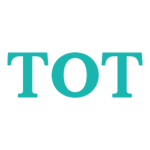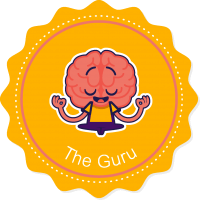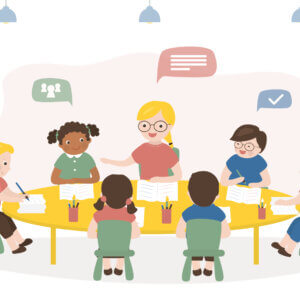
Feedback plays an important role in enhancing the learning outcomes. It serves as a valuable tool for students to gauge their performance and identify areas for improvement. As a measure of learning for academic advancement, assessment marks are traditionally regarded as feedback, which is widely accepted by parents and students both. Nevertheless, research conducted in a school in Peterborough, UK, suggests that effective feedback, rather than mere marks, can have numerous benefits. It can help students uncover hidden barriers, contribute to their mental and emotional well-being, and foster a deeper understanding of progress. It eventually generates a self-learning environment in the school. This pathway helped teachers have sufficient time to plan more engaging lessons that cultivate essential skills in their students.
With the change in the traditional way of learning, the methods of feedback for assessments also must change. Teachers may give feedback in various forms, including formal, informal, written, recorded, verbal, etc. Regardless of its form, feedback should always be constructive and task specific. Comments should not be based on any personal characteristic of the student or should not lack in clarity. Balanced feedback should include the strengths, areas of improvement, and actionable suggestions for further progress of the learner. Students should know how to utilise effective feedback, which can play a crucial role for their ongoing development.
Just like students, all individuals need proper feedback to improve efficiency in their respective domains. Teachers need systematic feedback to refine their teaching methodologies. Establishing international ranking tables or rubrics can provide constructive and actionable feedback to the teachers, which is usually lacking in the current feedback mechanisms. The diagnosis of the disease is not enough; the tools to cure the disease are also necessary. Finding out the areas for improvement is only half the task. The cycle will be complete only when the tools required for improvement are also provided to the teachers. The teachers must also know their strengths and weaknesses. This will help them to employ best practices and foster critical thinking among students, thus facilitating the development of 21st century skills.
Various methods exist for teachers to receive or give feedback. It could be peer review, where a colleague observes the class and gives his/her review. The second method could be collecting feedback from students at the end of a particular lesson. As a teacher, I have practiced this for years and found it to be an extremely effective strategy for self-development. The third way could be self-evaluation. A study was done based on self-evaluation, where the class of a particular teacher was recorded, and then the teacher watched the recording of his/her own class. It helped the teacher to identify the areas for improvement and start being creative in the teaching approach and lesson delivery. This iterative feedback process can not only support individual growth but also contribute to the overall improvement of educational practices. Thus, feedback is a simple yet powerful tool.
Learners learn better when facilitators improvise on the learning strategy as per the needs of the students. This brings out a constructive feedback and positive learning outcomes. Thus, an effective feedback mechanism can contribute to the broader goals of education. This approach will not only help students achieve their career aspirations but also contribute to building a stronger and more equitable society, ultimately propelling the country forward.
Barnali Mukhopadhyay Majumdar,
Academic Advisor,
Cambridge Assessment International Education,
Cambridge University Press and Assessment India Private Limited.





Yes,I believe self evaluation of a teacher in her teaching methods and feedback from students plays a vital role in their progress and improving methodology of teaching practices of teachers and keeping themselves updated about the new skills helps them in achieving their goals to a larger extent.
Absolutely!
Feedback if take postive can leave a huge imapct on the performance
Effective feedback mechanism can contribute to broader goals in education.
Feedback helps us to remain on track and provides a constant way to upgrade our knowledge in a more appropriate way both for teachers and students as well.
Feedback helps us to remain on track and provides a constant way to upgrade our knowledge in a more appropriate way both for teachers and students as well. it is away of growing ourselves.
Effective feedback cultivates a culture of continuous improvement.
Feedback is another form of polishing our skills. Positive feedback gives boost and motivation.
feedback should be constructive, so that learner has positive impact to learn.
Constructive feedback is the key to consistent growth of learners. At the same time it motivates a learner to rectify the areas of weakness.
Though feedback students get learning insights and strategies for improvement.
Feed back plays pivotal role to identify areas for professional development.
Great Writeup …
Definitely it will help the teachers and the learners.
Self evaluation seems to be the perfect one.
Feedback is necessary
Feed forward (back) is the key to self development. With the help of a good team, constructive criticism and open mind feedback can be productive in the short run and long run.
Positive and constructive feedback plays an important role for child’s Psych.
Feedbacks are really important for keeping teachers & students on track.
Absolutely right, feedback, particularly formative actually shapes and perfects the skills and knowledge of the learners if they are consistent and serious in following and executing the advices.
Feedback helps reach out to learners and effectively follow the See-Do-Get process.
FEEDBACK.
Foster open communication
Encourage improvement.
Engage with empathy.
Direct with clarity.
Build trust.
Acknowledge efforts.
Collaborate for solutions.
Keep constructive.